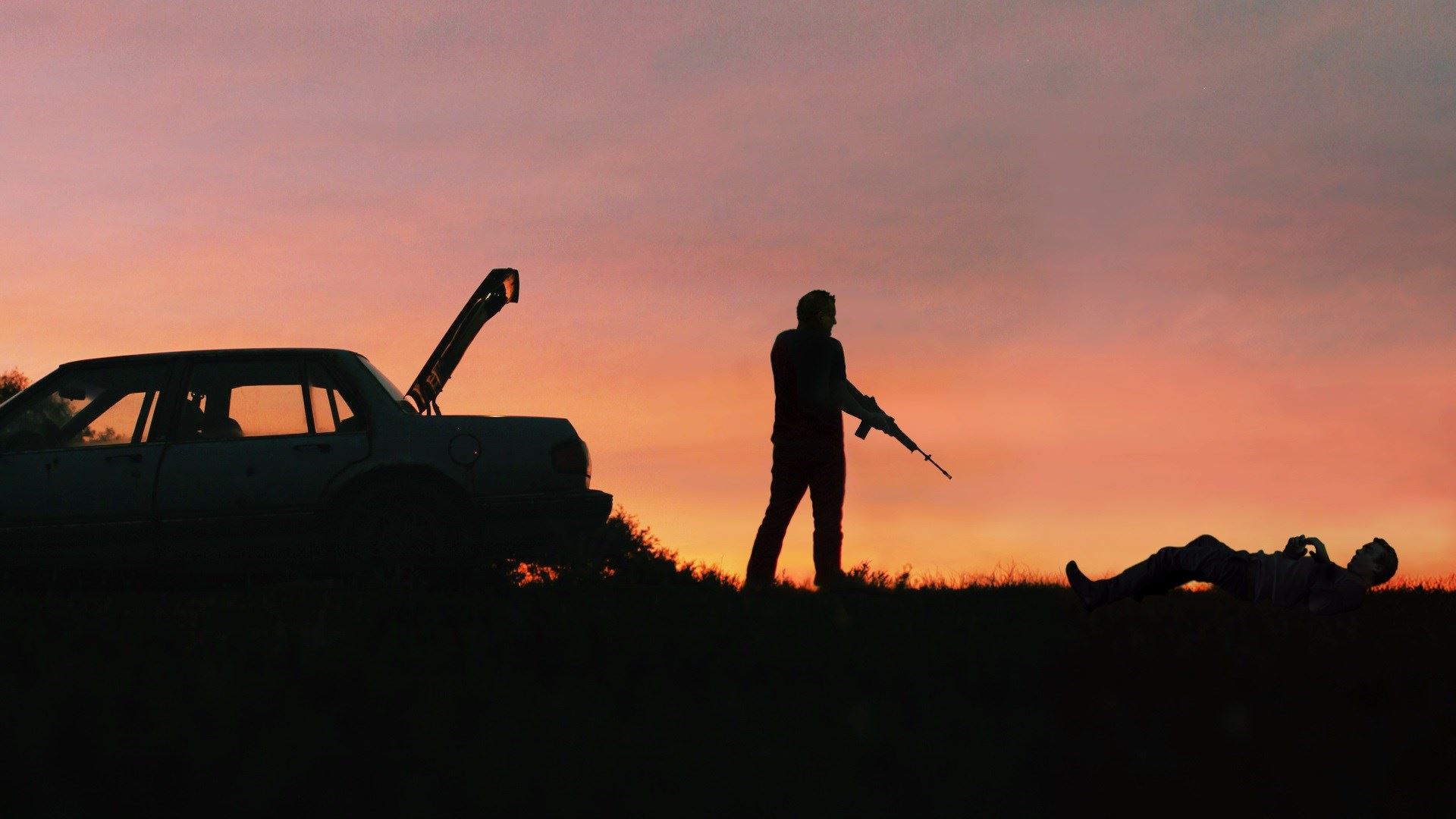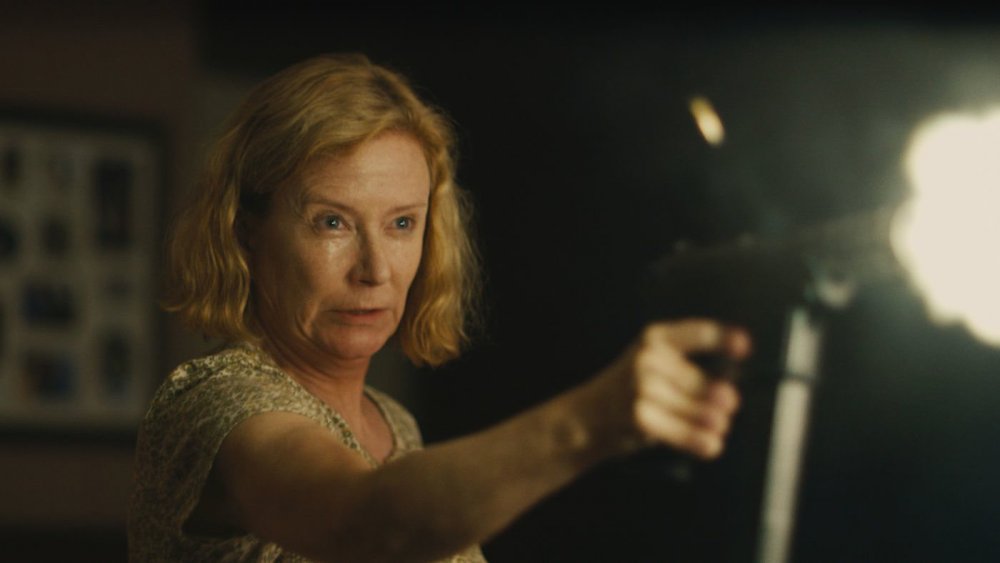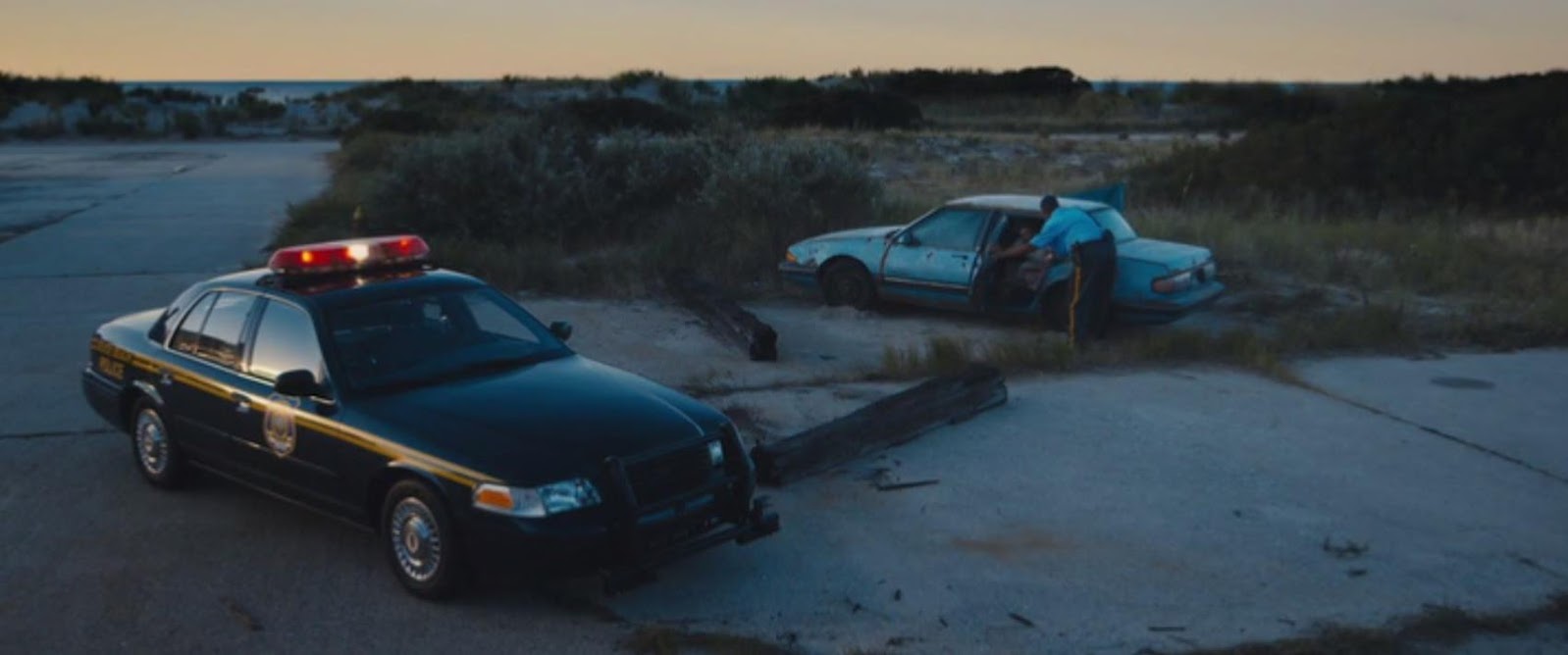
Tangled up in blue
The terra incognita ferociousness on shrewd display in Jeremy Saulnier’s Blue Ruin is a revelation. This small-scale genre picture, partially funded via Kickstarter, is a bloodstained revenge runs awry report, and it adds further evidence that American indie cinema is alive and well, even if the same cannot be said for the shattered and desolate characters who populate this picture.
Saulnier succeeds into full-on auteur as writer/director/cinematographer of this instantly engrossing shocker, aided by a consistent cast, lead by a true-blue Macon Blair.
Blair is assured and shining as Dwight, walking the wire between foolhardy and fool, on his hunt to revenge the deaths of his mother and father. When we’re first introduced to Dwight he’s hardly the browbeaten strong-arm type.
Near homeless, Dwight lives in his rusted-out, beaten-up old blue Pontiac Bonneville (the literal “blue ruin” of the title) dumpster dives for his dinners, runs baths in stranger’s homes when they aren’t in, and all with a sad sack presence of mind that makes him instantly endearing.
“Blue Ruin, which won an international-critics prize at Cannes last year (2013), is Saulnier’s successful attempt to build some creative space between the iron conventions of Hollywood revenge sagas and the informality of a movie made with friends. With its obsessed but unqualified hero, Blue Ruin makes a kind of comic sense if you match it up against glum, big-budget, male revenge fantasies—hard-driving movies with the likes of Charles Bronson and Mel Gibson.”
– David Denby, The New Yorker
Blood simple

As Blue Ruin unravels we discover that Wade Cleland Jr., the man responsible for his parents’ untimely end, and subsequent bereavement and mental anguish, is being released from prison. Thus begins a taut series of events where an at times inept Dwight goes all-out animus.
A few furrows develop, as you’d expect in this sort of post-Tarantino undertaking, but Saulnier’s sublime supposition and haunting resonance makes for an unpredictable and uncluttered affair. Dwight is clumsy and terror-stricken at times, and as the story accelerates, so to do our concerns for him.
Like its protagonist, the plot is simple, but this is by no means a weakness, and there is no shortage of shake ups or sanctions to sate fans of such ill-starred enterprises.
As Blue Ruin’s reputation spread through the festival circuit it performed well––conquering Cannes 2013 by winning the FIPRESCI prize at the Director’s Fortnight––it also began championing comparisons to the Coen Brothers, specifically No Country For Old Men, and while apt, I’d wager Saulnier is even more enterprising.
After all, No Country was the Coen’s fourteenth film, Blue Ruin is only Saulnier’s second, and was ably followed by 2015’s vicious siege film, Green Room, an absolute must-not-miss for genre fans.
Dwight, as he readies for his revenge play, reunites with his sister, Sam (Amy Hargreaves, excellent), and even gets an assist from a gun-loving estranged old chum, Ben (Devin Ratray, best known as Macaulay Culkin’s mean older brother in the Home Alone films, here he’s at last a hero).
‘Hey, man, I know this is personal. That’s how you’ll fail. No speeches, no talking. You point the gun, You shoot the gun.”
– Ben Gaffney (played by Devin Ratray)
Blue Moon, you knew just what I was there for

It’s tempting to tell more of what untangles in Dwight’s tit for tat bloodbath but I’d hate to downgrade the film’s pleasures for anyone with spoilers. I will say that Saulnier makes several scrupulous and even enraged treatise on gun culture, the post-9/11 landscape of rural America, and the messed up élan vital of a nation disintegrating.
Amidst the disrepair and the rot is some pitch-black humor and imaginable hope, this film, while appropriately overcast, is hemmed with a pale light.
And not since Krzysztof Kieślowski’s Blue has that color had so many daring and impudent uses; Dwight’s wreck of a ride, a neon-lit amusement park at night, the mercury vapors in empty car parks, an empty house at dusk, a faded poster outside Ben’s work that ironically reads “make love not war”, a kettle in the Cleland’s cottage, a tarp over a deteriorating limousine, a hospital gown, and lastly, in a predestined and unpunctual postcard.
“You know what’s awful? Just ’cause my dad loved your mom… we all end up dead.”
– Dwight Evans (played by Macon Blair)
Noon blue apples

In the end, once the final act has played out, we see the aftermath of a storm that has laid waste to part of a suburban neighbourhood.
Trees have come down in the storm, damaging property, automobiles, picket fences, and making lives messy, or so we can easily imagine. And there, amidst the wreckage, is Sam’s home, untouched by the tempest, she’s been spared. In that is the heart of Blue Ruin, a dark hymn to pained poetry, wronged beauty, and frustrated rage.
Author Bio: Shane Scott-Travis is a film critic, screenwriter, comic book author/illustrator and cineaste. Currently residing in Vancouver, Canada, Shane can often be found at the cinema, the dog park, or off in a corner someplace, paraphrasing Groucho Marx. Follow Shane on Twitter @ShaneScottravis.